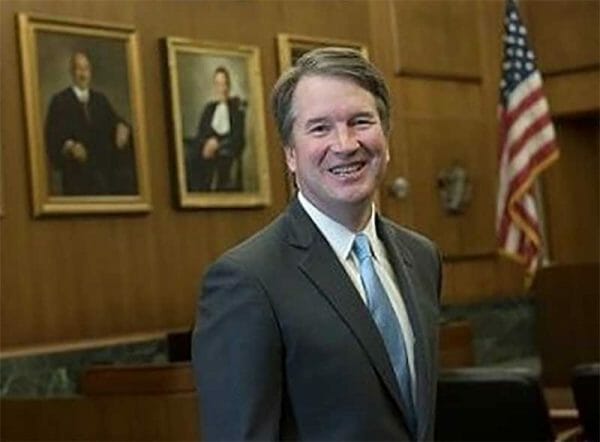
Washington, DC – -(Ammoland.com)- President Donald Trump on Monday night nominated Brett Kavanaugh, a federal appeals court judge in Washington, to succeed Anthony Kennedy on the Supreme Court.
Trump made the announcement at the White House, where he was joined by Kavanaugh and his family. Judge Kavanaugh’s opening statement began with him making the point that “a judge must be independent and must interpret the law, not make the law.” It is a very reassuring statement to hear when gun owners greatest fear is to get another activist judge on the high court.
While Kavanaugh’s long record of legal opinions and his work in fierce partisan battles are likely to offer Democrats plenty of ammunition for tough questions, gun activists can take comfort. Kavanaugh’s recent minority dissent, when the D.C. Circuit panel’s majority upheld the District of Columbia’s ban on possession of most semi-automatic rifles and its registration requirement for all guns in D.C, was a positive sign.
Judge Kavanaugh dissented (in Heller v. D.C. (2011)). An excerpt from his dissent:
In Heller, the Supreme Court held that handguns – the vast majority of which today are semi-automatic – are constitutionally protected because they have not traditionally been banned and are in common use by law-abiding citizens. There is no meaningful or persuasive constitutional distinction between semi-automatic handguns and semiautomatic rifles. Semi-automatic rifles, like semi-automatic handguns, have not traditionally been banned and are in common use by law-abiding citizens for self-defense in the home, hunting, and other lawful uses. Moreover, semiautomatic handguns are used in connection with violent crimes far more than semi-automatic rifles are. It follows from Heller’s protection of semi-automatic handguns that semi-automatic rifles are also constitutionally protected and that D.C.’s ban on them is unconstitutional. (By contrast, fully automatic weapons, also known as machine guns, have traditionally been banned and may continue to be banned after Heller.)
D.C.’s registration requirement, which is significantly more stringent than any other federal or state gun law in the United States, is likewise unconstitutional. Heller and later McDonald said that regulations on the sale, possession, or use of guns are permissible if they are within the class of traditional, “longstanding” gun regulations in the United States. Registration of all lawfully possessed guns – as distinct from licensing of gun owners or mandatory record-keeping by gun sellers – has not traditionally been required in the United States and even today remains highly unusual. Under Heller’s history- and tradition-based test, D.C.’s registration requirement is therefore unconstitutional.
AmmoLand News readers know we are in for a tough fight. The left and the get-Trump-media will be pulling out all the stops to block another rock-solid originalist judge to the supreme court. Get ready to vote in November and email your Senate representative and tell them to quickly appoint Judge Kavanaugh to the supreme court.






@Mac, No “living document”. Sounds like you’ve followed Kavanaugh’s rulings. Of the 300 or so case rulings, he dissented on one in favor of 2nd. Amendment (the one that is continuously mentioned, Heller 2). What of the others if any on 2nd. Amendment issues?
300 case decisions and only one 2nd. Amendment case? One case…that’s not a solid 2nd. Amendment background. He could be on the court for 40 years. He could be a worse double-crosser than Jeff Sessions.
This Kavanaugh was passed over the last time but this time he was selected. It was a hint to me that maybe he wasn’t the best when I found out he worked under Justice Kagan who is granny Ginsburg reincarnated. I’m not sure gun rights have been served with this one, either. Possibly we are being lead down a path of no guns.
The Constitution is a limiting factor on government powers. The liberal view is the Constitution is an ever changing
tool for government to control its subjects. Government is a subject to always be regarded as something to be limited.
That is the difference in perspective,what government should be, and how it is used.